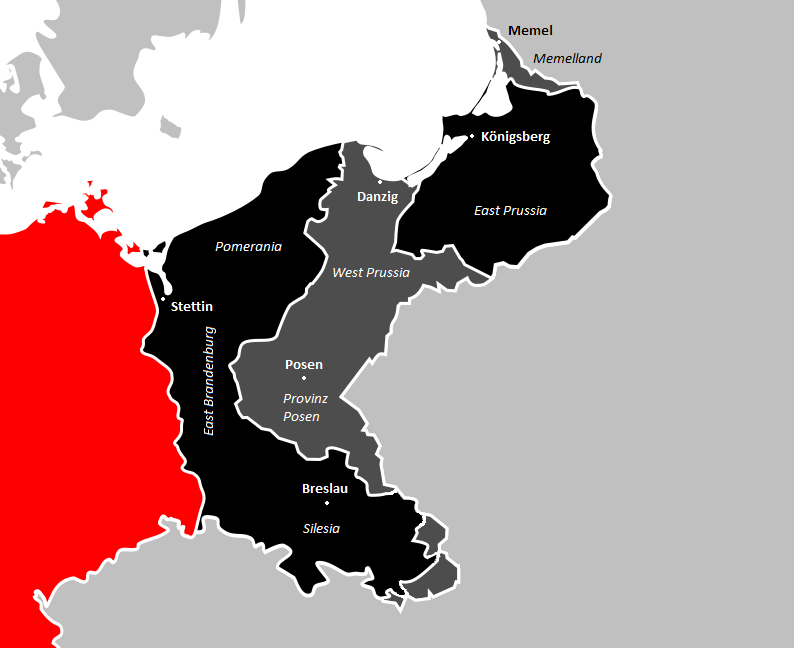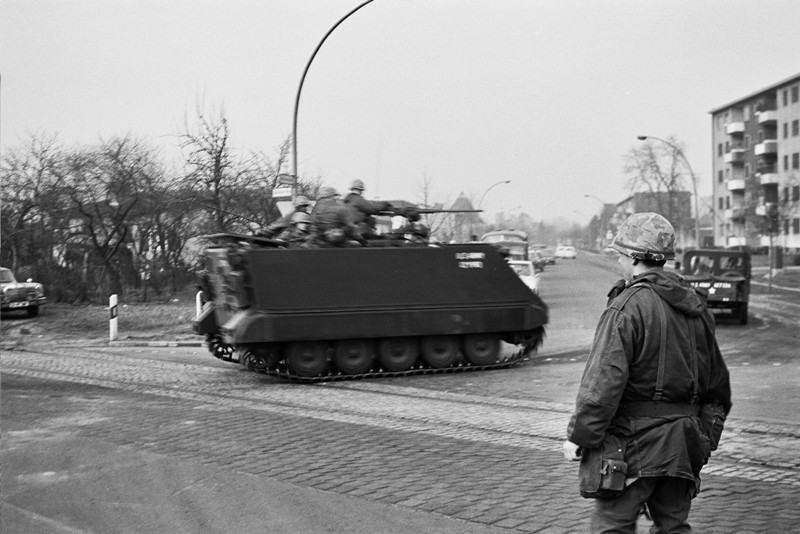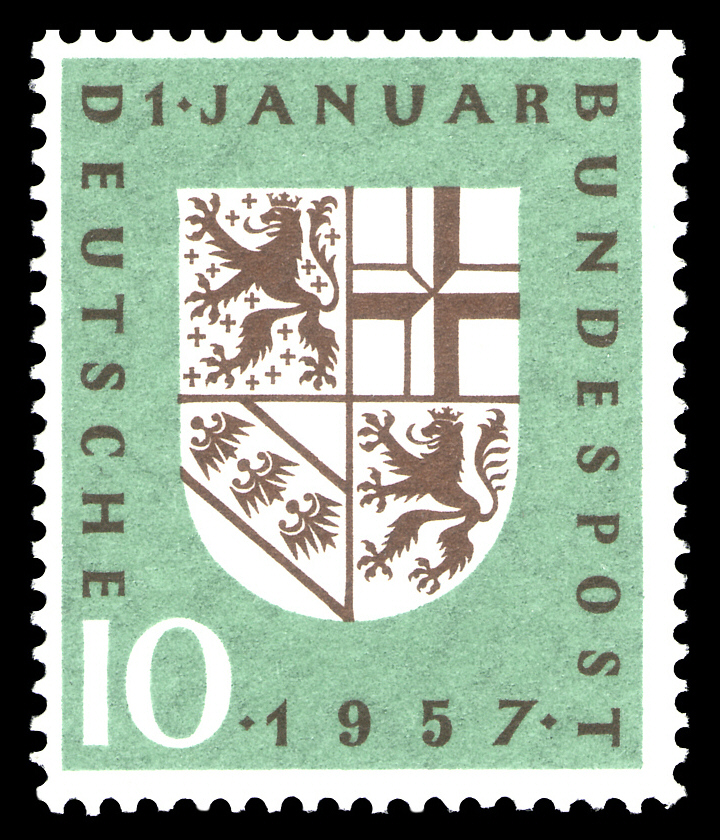|
Basic Law For The Federal Republic Of Germany
The Basic Law for the Federal Republic of Germany () is the constitution of the Germany, Federal Republic of Germany. The West German Constitution was approved in Bonn on 8 May 1949 and came into effect on 23 May after having been approved by the occupying western Allies of World War II on 12 May. It was termed "Basic Law" (, ) to indicate that it was a provisional piece of legislation pending the reunification of Germany. However, when reunification took place in 1990, the Basic Law was retained as the definitive constitution of reunified Germany. Its original field of application ()—that is, the states that were initially included in the West Germany, Federal Republic of Germany—consisted of the three Western Allies' zones of occupation, but at the insistence of the Western Allies, formally excluded West Berlin. In 1990, the Treaty on the Final Settlement with Respect to Germany, Two Plus Four Agreement between the two parts of Germany and all four Allies stipulated the ... [...More Info...] [...Related Items...] OR: [Wikipedia] [Google] [Baidu] [Amazon] |
Chancellor Of Germany
The chancellor of Germany, officially the federal chancellor of the Federal Republic of Germany, is the head of the federal Cabinet of Germany, government of Germany. The chancellor is the chief executive of the Federal Government of Germany, Federal Cabinet and heads the executive branch. The chancellor is elected by the Bundestag on the proposal of the President of Germany, federal president and without debate (Article 63 of the Basic Law for the Federal Republic of Germany, German Constitution). During a state of defence declared by the Bundestag the chancellor also assumes the position of commander-in-chief of the Bundeswehr. List of chancellors of Germany, Ten people (nine men and one woman) have served as chancellor of the Federal Republic of Germany, the first being Konrad Adenauer from 1949 to 1963. (Another 26 men had served as "Reich chancellors" of the previous German Empire from 1871 to 1945.) The current officeholder is Friedrich Merz of the Christian Democratic Un ... [...More Info...] [...Related Items...] OR: [Wikipedia] [Google] [Baidu] [Amazon] |
Federal Agency For Civic Education
The Federal Agency for Civic Education (FACE, (''bpb'')) is a German federal government agency responsible for promoting civic education. It is subordinated to the Federal Ministry of the Interior. Thomas Krüger has served as president of the agency since 2000. The modern agency was established in West Germany in 1952 by the Adenauer government to counteract communism Communism () is a political sociology, sociopolitical, political philosophy, philosophical, and economic ideology, economic ideology within the history of socialism, socialist movement, whose goal is the creation of a communist society, a ... during the Cold War, but it has its roots in earlier government agencies dating back to the First World War. Objective In 1997 the objectives for bpb were specified, and these were officially defined in 2001. Its task is now to promote understanding of political issues, strengthen awareness for democracy and willingness to participate in political processes amo ... [...More Info...] [...Related Items...] OR: [Wikipedia] [Google] [Baidu] [Amazon] |
Weimar Constitution
The Constitution of the German Reich (), usually known as the Weimar Constitution (), was the constitution that governed Germany during the Weimar Republic era. The constitution created a federal semi-presidential republic with a parliament whose lower house, the Reichstag (Weimar Republic), Reichstag, was elected by universal suffrage using proportional representation. The appointed upper house, the Reichsrat (Germany), Reichsrat, represented the interests of the federal states. The President of Germany (1919–1945), president of Germany had supreme command over the military, extensive emergency powers, and appointed and removed the chancellor, who was responsible to the Reichstag. The constitution included a significant number of civic rights such as freedom of speech and ''habeas corpus''. It guaranteed freedom of religion and did not permit the establishment of a state church. The constitution contained a number of weaknesses which, under the difficult conditions of the inter ... [...More Info...] [...Related Items...] OR: [Wikipedia] [Google] [Baidu] [Amazon] |
European Union
The European Union (EU) is a supranational union, supranational political union, political and economic union of Member state of the European Union, member states that are Geography of the European Union, located primarily in Europe. The union has a total area of and an estimated population of over 449million as of 2024. The EU is often described as a ''sui generis'' political entity combining characteristics of both a federation and a confederation. Containing 5.5% of the world population in 2023, EU member states generated a nominal gross domestic product (GDP) of around €17.935 trillion in 2024, accounting for approximately one sixth of global economic output. Its cornerstone, the European Union Customs Union, Customs Union, paved the way to establishing European Single Market, an internal single market based on standardised European Union law, legal framework and legislation that applies in all member states in those matters, and only those matters, where the states ... [...More Info...] [...Related Items...] OR: [Wikipedia] [Google] [Baidu] [Amazon] |
Ostgebiete
In present-day Germany, the former eastern territories of Germany () refer to those territories east of the current eastern border of Germany, i.e. the Oder–Neisse line, which historically had been considered German and which were annexed by Poland and the Soviet Union after World War II. In contrast to the lands awarded to the restored Polish state by the Treaty of Versailles after World War I, the German territories lost with the post-World War II Potsdam Agreement were either almost exclusively inhabited by Germans before 1945 (the bulk of East Prussia, Lower Silesia, Farther Pomerania, and parts of Western Pomerania, Lusatia, and Neumark), mixed German– Polish with a German majority (the Posen–West Prussia Border March, Lauenburg and Bütow Land, the southern and western rim of East Prussia, Ermland, Western Upper Silesia, and the part of Lower Silesia east of the Oder), or mixed German–Czech with a German majority ( Glatz). Virtually the entire German popula ... [...More Info...] [...Related Items...] OR: [Wikipedia] [Google] [Baidu] [Amazon] |
Constitutional Rights
A constitutional right can be a prerogative or a duty, a power or a restraint of power, recognized and established by a sovereign state or union of states. Constitutional rights may be expressly stipulated in a national constitution, or they may be inferred from the language of a national constitution, which is the supreme law of the land, meaning that laws that contradict it are considered unconstitutional and invalid. Usually any constitution defines the structure, functions, powers, and limits of the national government and the individual freedoms, rights, and obligations which will be protected and enforced when needed by the national authorities. Nowadays, most countries have a written constitution comprising similar or distinct constitutional rights. Other coded set of laws have existed before the first Constitutions were developed having some similar purpose and functions, like the United Kingdom's 1215 Magna Carta or the Virginia Bill of Rights of 1776. Specific rights ... [...More Info...] [...Related Items...] OR: [Wikipedia] [Google] [Baidu] [Amazon] |
German Reunification
German reunification () was the process of re-establishing Germany as a single sovereign state, which began on 9 November 1989 and culminated on 3 October 1990 with the dissolution of the East Germany, German Democratic Republic and the integration of its re-established constituent federated states into the West Germany, Federal Republic of Germany to form Germany, present-day Germany. This date was chosen as the customary German Unity Day, and has thereafter been celebrated each year as a national day, national holiday. On the same date, East Berlin, East and West Berlin, West Berlin were also reunified into a single city, which eventually Decision on the Capital of Germany, became the capital of Germany. The East German government, controlled by the Socialist Unity Party of Germany (SED), started to falter on 2 May 1989, when the removal of Hungary's border fence with Austria opened a hole in the Iron Curtain. The border was still closely guarded, but the Pan-European Picn ... [...More Info...] [...Related Items...] OR: [Wikipedia] [Google] [Baidu] [Amazon] |
Treaty On The Final Settlement With Respect To Germany
The Treaty on the Final Settlement with Respect to Germany (), more commonly referred to as the Two Plus Four Agreement (), is an international agreement that allowed the reunification of Germany in October 1990. It was negotiated in 1990 between the 'two', the Federal Republic of Germany and the German Democratic Republic, in addition to the Four Powers which had occupied Germany at the end of World War II in Europe: France, the Soviet Union, the United Kingdom, and the United States. The treaty supplanted the 1945 Potsdam Agreement: in it, the Four Powers renounced all rights they had held with regard to Germany, allowing for its reunification as a fully sovereign state the following year. Additionally, the two German states agreed to reconfirm the existing border with Poland in the German–Polish Border Treaty, accepting that German territory post-reunification would consist only of what was presently administered by West and East Germany—renouncing explicitly any possi ... [...More Info...] [...Related Items...] OR: [Wikipedia] [Google] [Baidu] [Amazon] |
West Berlin
West Berlin ( or , ) was a political enclave which comprised the western part of Berlin from 1948 until 1990, during the Cold War. Although West Berlin lacked any sovereignty and was under military occupation until German reunification in 1990, the territory was claimed by the West Germany, Federal Republic of Germany (FRG or West Germany), despite being entirely surrounded by the East Germany, German Democratic Republic (GDR or East Germany). The legality of this claim was contested by the Soviet Union and other Eastern Bloc countries. However, West Berlin de facto aligned itself politically with the FRG from May 1949 and was thereafter treated as a ''de facto'' city-state of that country. After 1949, it was directly or indirectly represented in the institutions of the FRG, and most of its residents were citizens of the FRG. West Berlin was formally controlled by the Western Allies and entirely surrounded by East Berlin and East Germany. West Berlin had great symbolic signi ... [...More Info...] [...Related Items...] OR: [Wikipedia] [Google] [Baidu] [Amazon] |
West Germany
West Germany was the common English name for the Federal Republic of Germany (FRG) from its formation on 23 May 1949 until German reunification, its reunification with East Germany on 3 October 1990. It is sometimes known as the Bonn Republic after its capital city of Bonn, or as the Second German Republic. During the Cold War, the western portion of Germany and the associated territory of West Berlin were parts of the Western Bloc. West Germany was formed as a political entity during the Allied occupation of Germany after World War II, established from 12 States of Germany, states formed in the three Allied zones of occupation held by the United States, the United Kingdom, and France. At the onset of the Cold War, Europe was divided between the Western and Eastern Bloc, Eastern blocs. Germany was divided into the two countries. Initially, West Germany claimed an exclusive mandate for all of Germany, representing itself as the sole democratically reorganised continuation of ... [...More Info...] [...Related Items...] OR: [Wikipedia] [Google] [Baidu] [Amazon] |
Reunification Of Germany
German reunification () was the process of re-establishing Germany as a single sovereign state, which began on 9 November 1989 and culminated on 3 October 1990 with the dissolution of the German Democratic Republic and the integration of its re-established constituent federated states into the Federal Republic of Germany to form present-day Germany. This date was chosen as the customary German Unity Day, and has thereafter been celebrated each year as a national holiday. On the same date, East and West Berlin were also reunified into a single city, which eventually became the capital of Germany. The East German government, controlled by the Socialist Unity Party of Germany (SED), started to falter on 2 May 1989, when the removal of Hungary's border fence with Austria opened a hole in the Iron Curtain. The border was still closely guarded, but the Pan-European Picnic and the indecisive reaction of the rulers of the Eastern Bloc started off an irreversible movement. ... [...More Info...] [...Related Items...] OR: [Wikipedia] [Google] [Baidu] [Amazon] |




